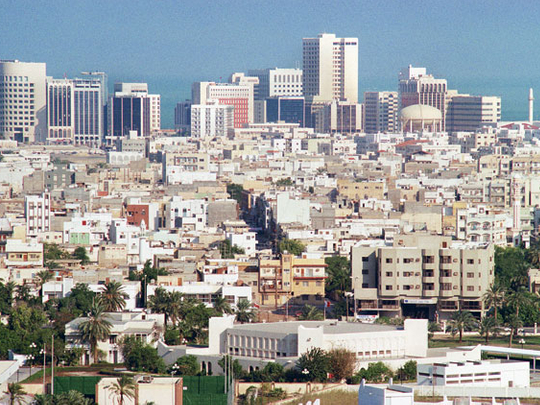
Manama: Bahrain put political reform ahead of economic reform, and the process is going well as the country looks forward to growth rates of around 3.5 per cent this year despite the global recession, Shaikh Ahmad Bin Mohammad Al Khalifa, Bahraini Minister of Finance, said.
"Parliament is noisy and there is a lot of political debate, but this process is good. It builds a consensus which includes more people," said Shaikh Ahmad, describing the impact of Bahrain's parliament which was started in 2002 and is coming to the end of its second term later this year.
"We expect growth of around 3.5 per cent, but more importantly we have kept unemployment of our nationals down at 3.7 per cent, which is a very important success for our country," Shaikh Ahmad told the International Institute of Strategic Studies' Bahrain Global Forum yesterday.
Having first introduced political reforms with the new parliament over the past decade, the country sought strong engines of economic growth, the minister of finance said, with labour reform and better education being very important for economic success.
He pointed out that the system of imposing a fee of 100 Bahraini dinars per head on lower paid foreign workers' jobs has generated a total of $185 million, which has been spent on training and improving the quality of the work force.
But this has had another benefit in fighting unemployment of nationals because "this fee has stopped downward pressure on the wages paid to Bahrainis doing these jobs, because even if the foreign workers come for much lower salaries the cost to the employer is higher. This has meant that Bahrainis get these jobs at a higher salary than the free market would allow," Shaikh Ahmad said.
Shaikh Ahmad pointed out that the government has an active process of education reform under way.
"An independent body has reviewed all the country's schools and universities; and we have independent standards that are being applied to the schools," the minister said.
Shaikh Ahmad has been a supporter of the G20's achievements since it was started in 2009, even if Bahrain is not part of the group. "Bahrain is a member of the G186" he joked as he praised the work of the G20 as having been a vital part of dealing with the global crisis.
"The G20 has averted trade protectionism, used fiscal measures to stimulate demand, given emerging countries access to finance they would not have had otherwise, and the Financial Stability Board has done very good work."
"The G20 has also taken a lead on reform of the IMF and World Bank, and has added 3.13 per cent to the voting rights for the developing nations, taking their share to 47.19 per cent," Shaikh Ahmad said.












